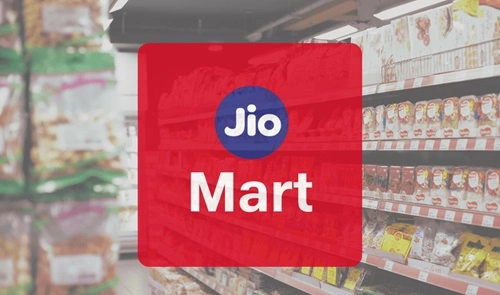JioMart, launched in December 2019, is Reliance Retail’s e-commerce platform aimed at revolutionizing the Indian online retail space. Backed by Reliance Industries and powered by Jio’s robust digital ecosystem, JioMart offers a range of products, including groceries, fashion, electronics, and home essentials. Positioned as a challenger to established players like Amazon and Flipkart, JioMart combines the advantages of an extensive offline retail presence with the convenience of online shopping.
This article delves into JioMart’s business model, revenue streams, and the strategies that underpin its rapid growth in India’s competitive e-commerce landscape.
Overview of JioMart’s Business Model

JioMart operates on a hybrid online-to-offline (O2O) business model, connecting customers with local kirana (grocery) stores and leveraging Reliance Retail’s vast network of physical outlets. It integrates digital technology with physical infrastructure to deliver a seamless shopping experience.
Key Features of JioMart’s Business Model:
- O2O Commerce:
- JioMart connects customers to nearby kirana stores for quick delivery while offering online ordering convenience.
- Wide Product Range:
- It caters to multiple categories, including groceries, personal care, electronics, fashion, and home essentials.
- Integration with Jio Ecosystem:
- JioMart benefits from the extensive reach of Jio’s telecom network, offering services to millions of internet users across India.
- Hyperlocal Delivery:
- Orders are fulfilled through a hyperlocal delivery model, ensuring faster delivery times and lower logistics costs.
- Competitive Pricing:
- By sourcing directly from manufacturers and leveraging economies of scale, JioMart offers products at discounted prices.
How Does JioMart Earn Money?
JioMart generates revenue through multiple streams by leveraging its e-commerce platform, partnerships, and extensive product offerings. Here’s how it earns money:
a. Retail Product Sales
- Core Revenue Stream:
- JioMart earns a significant portion of its revenue through the sale of products across categories such as groceries, personal care, fashion, and electronics.
- Competitive Pricing:
- The platform sources products directly from manufacturers and brands, cutting out intermediaries to offer lower prices while maintaining margins.
b. Commission from Sellers
- Partnered Kirana Stores:
- JioMart charges a commission on every sale made through its platform from partner kirana stores and other third-party sellers.
- Marketplace Model:
- For sellers using JioMart as a platform to reach customers, a commission fee is charged based on the product category and transaction value.
c. Subscription Revenue
- JioMart offers subscription plans for frequent buyers, particularly in the grocery segment, providing benefits such as:
- Free or discounted delivery.
- Exclusive offers and early access to deals.
- These subscriptions create a steady stream of recurring revenue.
d. Advertising Revenue
- Seller Advertising:
- Sellers and brands pay JioMart to promote their products through sponsored listings, banners, and targeted ads on the platform.
- Personalized Ads:
- By leveraging customer data from the Jio ecosystem, JioMart offers personalized advertising opportunities to brands, driving higher engagement and ad revenue.
e. Data Monetization
- With access to millions of Jio users, JioMart utilizes customer data to derive insights into purchasing behavior, enabling targeted marketing campaigns. Revenue is generated by providing these insights to brands and manufacturers.
f. Logistics and Delivery Services
- JioMart uses its in-house logistics network to fulfill orders and offers delivery services to partner sellers for a fee. This allows sellers to benefit from JioMart’s extensive supply chain infrastructure.
g. Private Label Products
- Reliance Retail offers private-label products on JioMart, especially in the grocery and personal care segments. These products are manufactured at lower costs and sold directly to customers, yielding higher profit margins.
h. Cross-Selling Financial Services
- Through Reliance Jio and JioMart’s ecosystem, the platform offers payment solutions like Jio UPI and financial products such as insurance and credit cards. Commissions from these services contribute to revenue.
i. Partner Integration Fees
- JioMart integrates with third-party platforms, such as WhatsApp, to facilitate order placements and transactions. Partner businesses pay integration fees for accessing JioMart’s growing customer base.
Why JioMart’s Model Works
JioMart’s business model has gained traction due to its focus on affordability, accessibility, and leveraging Reliance’s existing assets. Here’s why it works:
a. Extensive Offline Network
- Reliance Retail’s physical presence in over 15,000 stores and partnerships with local kirana stores enable JioMart to efficiently handle last-mile delivery and offer competitive prices.
b. Integration with Jio
- With over 450 million Jio users, JioMart taps into an existing digital customer base, reducing customer acquisition costs and ensuring high app adoption rates.
c. Direct Sourcing
- By cutting out intermediaries and sourcing products directly from manufacturers, JioMart maintains cost efficiency while ensuring consistent product quality.
d. Localized Approach
- The O2O model caters to India’s unique retail landscape by empowering local kirana stores to participate in the e-commerce revolution, ensuring hyperlocal delivery and customer trust.
e. Diversified Revenue Streams
- JioMart’s ability to monetize through advertising, subscriptions, logistics, and data analytics ensures a robust and diversified revenue model.
Financial Performance
JioMart has rapidly scaled its operations since its launch, contributing significantly to Reliance Retail’s financial performance.
Revenue Growth
- JioMart contributed to Reliance Retail’s consolidated revenue of ₹2.6 lakh crore in FY 2023, marking a significant increase year-on-year due to the rapid adoption of its online and offline channels.
Customer Base
- The platform serves millions of customers across 400+ cities, with a strong focus on both urban and rural markets.
Market Leadership
- JioMart has quickly gained a significant share in the online grocery market, challenging established players like BigBasket and Grofers (now Blinkit).
Challenges and Opportunities
Challenges
- Intense Competition:
- JioMart faces competition from Amazon, Flipkart, and niche players like BigBasket in the e-commerce space.
- Logistical Complexities:
- Managing a hyperlocal delivery network while maintaining cost efficiency is a significant operational challenge.
- Customer Retention:
- Retaining customers in a price-sensitive market requires consistent value, competitive pricing, and superior service.
Opportunities
- Rural Penetration:
- Expanding deeper into Tier 2 and Tier 3 cities can help JioMart tap into untapped rural demand.
- Private Label Expansion:
- Introducing more private-label products in categories like groceries, personal care, and home essentials can boost margins.
- Integration with WhatsApp:
- Leveraging its partnership with WhatsApp for seamless order placement and communication can enhance customer engagement.
- Ecosystem Synergies:
- Cross-selling Reliance’s other services, such as JioFiber and JioMart financial products, can create additional revenue streams.
Future Prospects
JioMart’s future growth is underpinned by its integration with Reliance’s digital ecosystem and expansion into new markets. Key areas of focus include:
- Strengthening partnerships with local kirana stores to improve delivery speed and efficiency.
- Expanding the product range to include niche categories and premium products.
- Investing in AI-driven personalization and data analytics to enhance customer experiences.
- Scaling operations to compete with global e-commerce giants like Amazon and Walmart-owned Flipkart.
Conclusion
JioMart’s business model combines the strengths of Reliance Retail’s extensive physical network and Jio’s digital ecosystem, creating a unique hybrid approach to e-commerce in India. With its competitive pricing, hyperlocal delivery model, and emphasis on empowering local businesses, JioMart has positioned itself as a formidable player in India’s e-commerce landscape. As the platform continues to expand its reach and diversify its offerings, JioMart is poised to play a pivotal role in shaping the future of retail in India.

